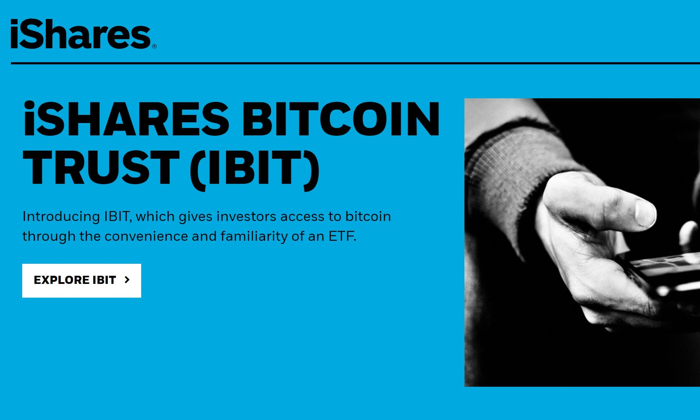The influence of the crypto market in the US is rapidly becoming a pivotal force in the global economy, as highlighted by CryptoQuant CEO Ki Young Ju’s recent warnings. He suggests that the United States is leveraging digital assets to strengthen its geopolitical position, raising critical concerns about cryptocurrency geopolitics. Ju’s insights underline a shifting landscape where ethical boundaries are increasingly blurred, particularly under the influence of figures like Donald Trump, whose controversial memecoin launch exemplifies the intertwining of politics and digital currencies. As the US formulates its digital assets US strategy, it appears that the crypto market is evolving into a tool for national interests rather than a neutral financial ecosystem. This transformation has sparked debates among industry experts, especially regarding how such maneuvers could adversely affect non-US cryptocurrencies like Bitcoin and Ethereum.
The burgeoning role of the cryptocurrency sector in shaping international relations is drawing significant attention, particularly as the United States appears to navigate this landscape with a strategic mindset. Emerging discussions around digital currencies often reference terms like “digital assets strategy” and “cryptocurrency geopolitics,” indicating a broader context where financial innovations intersect with national agendas. Observations from industry leaders, such as Ki Young Ju, highlight concerns that the US may be utilizing these assets not just for economic growth but as instruments of influence. In this evolving narrative, the implications of political figures endorsing specific coins, such as the Trump memecoin, raise questions about the integrity of the market and its potential to serve sovereign interests. As the lines between finance and politics blur, understanding these dynamics becomes crucial for stakeholders across the globe.
The U.S. Influence on Cryptocurrency Geopolitics
The influence of the United States in the cryptocurrency landscape is increasingly becoming a focal point of discussion among industry leaders. As noted by CryptoQuant’s CEO Ki Young Ju, the cryptocurrency market is evolving into a strategic asset that the U.S. government may leverage to bolster its geopolitical standing. This shift reflects a broader trend where digital assets are not merely financial instruments but tools that can be wielded to achieve national interests. The intertwining of cryptocurrency and geopolitics raises important questions about the ethical implications of using financial technologies for political gain.
Ju’s observations highlight the potential for cryptocurrencies to serve as a means of exerting U.S. influence globally. With projects like the Trump memecoin illustrating how political agendas can shape the cryptocurrency landscape, it becomes evident that the dynamics of digital assets are closely tied to the ambitions of government officials. This development raises concerns among investors and industry experts about the long-term implications for the neutrality of cryptocurrencies, particularly for established assets such as Bitcoin and Ethereum, which were initially designed to function independently of political influences.
Trump’s Memecoin and Its Impact on Digital Assets
The launch of the Trump memecoin has sparked significant debate within the cryptocurrency community, as it exemplifies the intersection of politics and digital finance. Critics argue that this coin symbolizes a troubling trend where cryptocurrencies are used to advance political narratives instead of serving their intended purpose as decentralized assets. By aligning a cryptocurrency with a political figure, there is a risk of undermining the foundational principles of the crypto movement, which advocates for financial freedom and autonomy away from government control.
Moreover, the Trump memecoin raises pertinent questions about regulatory favoritism in the cryptocurrency market. Ju suggests that projects supporting the Trump administration’s agenda may receive preferential treatment, potentially skewing the competitive landscape. Such a scenario could disadvantage cryptocurrencies that strive for neutrality, as they may face challenges in gaining traction against assets that benefit from political backing. This situation emphasizes the need for a robust dialogue on regulatory frameworks that ensure fair play in the burgeoning crypto market.
Digital Assets as a Strategic Tool for U.S. Interests
As the U.S. positions itself as a leader in the cryptocurrency space, the strategic use of digital assets to further national interests becomes increasingly apparent. According to Ki Young Ju, the rapid implementation of U.S. policies in the crypto sector reflects an intention to harness these technologies for geopolitical leverage. The establishment of a strategic reserve of cryptocurrencies like XRP, Solana, and Cardano signifies the government’s commitment to integrating digital assets into its economic strategy.
This approach may not only enhance the U.S. economic landscape but could also serve to attract foreign capital. However, it raises significant concerns about the implications for global financial systems. If digital assets are perceived as tools of U.S. dominance, other nations may respond by developing their own strategies to counterbalance American influence in the crypto market. The potential for such geopolitical maneuvering underscores the importance of understanding the relationship between cryptocurrency and international relations.
Ki Young Ju’s Predictions for the Future of Cryptocurrency
Ki Young Ju’s insights into the future of cryptocurrency reflect a deep understanding of the market’s evolving landscape amid geopolitical tensions. His predictions suggest that the actions of the U.S. government will play a pivotal role in shaping the trajectory of digital assets over the coming years. As the U.S. increasingly embraces cryptocurrencies, there is a possibility that other nations might feel compelled to respond in kind, either by adopting similar technologies or by implementing regulatory frameworks to protect their interests.
Ju’s foresight emphasizes the importance of vigilance among cryptocurrency stakeholders as geopolitical factors continue to influence market dynamics. He warns that the ongoing interplay between national interests and digital assets could create an environment where certain cryptocurrencies thrive at the expense of others. This scenario could lead to a fragmented market where regulatory landscapes vary significantly across borders, further complicating the global adoption of cryptocurrencies.
The Role of the U.S. in Shaping Global Crypto Regulations
The U.S. has traditionally been at the forefront of establishing financial regulations that impact global markets, and the cryptocurrency sector is no exception. With the increasing involvement of U.S. political entities in the crypto space, there is a potential for American regulations to set a precedent for other countries. As discussed by Ki Young Ju, the U.S. government’s strategic initiatives may lead to a ripple effect, influencing how other nations develop their regulatory frameworks for digital assets.
This regulatory influence poses challenges and opportunities for the global cryptocurrency landscape. On one hand, harmonized regulations could facilitate broader adoption and integration of digital assets worldwide. On the other hand, if U.S. policies favor domestic interests, they may inadvertently create barriers for international competitors. The delicate balance between fostering innovation and ensuring fair competition will be critical as the U.S. continues to navigate its role in the cryptocurrency ecosystem.
Concerns Over Ethical Boundaries in the Crypto Market
The blurring of ethical boundaries in the cryptocurrency market is a significant concern raised by industry leaders like Ki Young Ju. He suggests that the normalization of political motivations in the crypto space could lead to a future where financial decisions are heavily influenced by national interests rather than market fundamentals. This shift could undermine the core values of decentralization and independence that initially attracted many investors to the cryptocurrency movement.
As cryptocurrencies become entangled with political agendas, it becomes crucial for stakeholders to advocate for transparency and ethical standards within the industry. Ju’s observations serve as a reminder of the potential pitfalls of a politicized crypto landscape, where the focus shifts from innovation to compliance with political narratives. The challenge moving forward will be to ensure that the cryptocurrency market retains its foundational principles amidst the growing influence of state interests.
Evaluating the Risks of U.S. Dominance in Cryptocurrency
The potential for U.S. dominance in the cryptocurrency market raises important questions about the risks associated with centralized control over decentralized assets. As Ki Young Ju warns, if the U.S. continues to leverage cryptocurrencies to serve its national interests, it could lead to significant repercussions for the global financial ecosystem. The growing reliance on digital assets as tools of statecraft may create a situation where other countries feel pressured to develop their own competitive frameworks, thus escalating geopolitical tensions.
Furthermore, the implications of U.S. dominance could result in market volatility, with investors facing uncertainty regarding the future of cryptocurrencies that do not align with U.S. interests. This scenario highlights the need for a balanced approach that allows for innovation while protecting the integrity of the cryptocurrency market. As the landscape evolves, stakeholders must remain vigilant to the potential consequences of political maneuvers within the crypto space.
Future Directions for Cryptocurrency Under U.S. Influence
Looking ahead, the trajectory of cryptocurrency will likely be shaped by the ongoing interplay of U.S. influence and global responses. As highlighted by Ki Young Ju, the U.S. has the opportunity to lead in the development of ethical frameworks that govern digital assets, ensuring that they remain tools for financial freedom rather than instruments of political control. Establishing clear guidelines could help mitigate risks associated with geopolitical maneuvering and foster a healthier environment for innovation.
Ultimately, the future of cryptocurrency hinges on the ability of global stakeholders to navigate the complexities of political influences while preserving the fundamental principles that underpin the crypto movement. As nations grapple with the implications of digital assets, the call for collaborative dialogue and international cooperation becomes increasingly crucial to ensuring a balanced and prosperous future for cryptocurrency.
The Importance of Neutrality in Cryptocurrency
The concept of neutrality in cryptocurrency is fundamental to its original vision as a decentralized financial system. Ki Young Ju’s concerns about the U.S. potentially leveraging digital assets for national interests highlight the importance of maintaining neutrality among cryptocurrencies. If certain assets are favored due to political ties, it could undermine the trust and integrity of the entire ecosystem, leading to skepticism from investors and users alike.
Promoting neutrality is essential for the long-term sustainability of the cryptocurrency market. As the sector evolves, it will be vital for industry leaders to advocate for an environment where all cryptocurrencies can compete fairly without the influence of political agendas. By fostering a culture of transparency and inclusivity, the cryptocurrency community can work towards realizing its vision of financial independence for individuals worldwide.
Frequently Asked Questions
How is the crypto market influenced by the United States according to CryptoQuant CEO Ki Young Ju?
CryptoQuant CEO Ki Young Ju warns that the US is increasingly using the cryptocurrency market as a tool for geopolitical gain. He suggests that under the current administration, ethical standards in the crypto sector are being compromised, allowing actions that align with US national interests to go unchecked.
What are the implications of the Trump memecoin on the US cryptocurrency market?
The Trump memecoin exemplifies how the US government may prioritize certain cryptocurrency projects that support its agenda. Ki Young Ju highlights concerns that such preferential treatment could manipulate the crypto market and undermine the neutrality of digital assets.
What concerns does Ki Young Ju have regarding the US digital assets strategy?
Ki Young Ju expresses concern that the US digital assets strategy might position cryptocurrencies against other nations. He believes this approach seeks to dominate the global crypto market while attracting foreign capital, potentially harming the integrity of assets like Bitcoin and Ethereum.
How has the geopolitical landscape affected cryptocurrency regulations in the US?
The evolving geopolitical landscape has led to a transformation in US cryptocurrency regulations, as highlighted by Ki Young Ju. He argues that actions benefiting US interests are increasingly tolerated, creating a blurred line between legality and ethical conduct in the crypto market.
Why does Ki Young Ju believe ethical boundaries in the crypto market have diminished?
Ki Young Ju attributes the diminishing ethical boundaries in the crypto market to the actions of the Trump administration, which he claims have established a precedent where actions that benefit the administration are often seen as permissible, despite their potential ethical implications.
What might be the future of Bitcoin and Ethereum in the context of US cryptocurrency policies?
Ki Young Ju warns that Bitcoin and Ethereum could be adversely affected by US cryptocurrency policies that favor certain digital assets aligned with national interests. He suggests that these major cryptocurrencies, which strive for neutrality, may struggle to maintain their intended roles as public utilities.
How does the US strategy for digital assets align with global cryptocurrency trends?
The US strategy for digital assets appears to be a deliberate attempt to position the country as a leader in the cryptocurrency space. Ki Young Ju notes that this strategy could conflict with global trends, as it prioritizes US national interests over a more decentralized and neutral approach to cryptocurrency.
What role does the US play in shaping cryptocurrency geopolitics?
The US plays a significant role in shaping cryptocurrency geopolitics by leveraging its economic power to influence global digital asset policies. According to Ki Young Ju, this influence is becoming increasingly pronounced, with the US using cryptocurrency as a means to assert its dominance on the world stage.
What are Ki Young Ju’s predictions for the future of the US cryptocurrency market?
Ki Young Ju predicts that the US will continue to develop its cryptocurrency policies rapidly, focusing on strategies that align with national interests. He admires the speed of these developments but remains cautious about their implications for global cryptocurrency dynamics.
How might foreign countries react to the US’s influence in the cryptocurrency market?
Foreign countries may react negatively to the US’s influence in the cryptocurrency market, as Ki Young Ju suggests that US-centric policies could disadvantage other nations. This could lead to increased tensions and a push for alternative digital asset strategies that are more inclusive and equitable.
| Key Point | Details |
|---|---|
| US Influence in Crypto | The US is using the crypto market to enhance its national interests, as noted by CryptoQuant CEO Ki Young Ju. |
| Ethical Concerns | Ju highlights that ethical boundaries have blurred under Trump’s administration, making actions that benefit him seem lawful. |
| Memecoin Example | Ju cites Trump’s memecoin launch as indicative of preferential treatment towards crypto projects aligned with the administration. |
| Global Strategy | Ju warns that US-aligned digital assets may be used against other nations, aiming for global dominance in the crypto sector. |
| Impact on Bitcoin and Ethereum | Ju suggests that US favoritism could harm Bitcoin and Ethereum, which strive for neutrality. |
| Admiration for US Strategy | Ju admires the speed of US policy implementation in the crypto market, despite disagreeing with its direction. |
Summary
The influence of the US on the crypto market is becoming increasingly significant, as highlighted by the concerns raised by CryptoQuant CEO Ki Young Ju. He warns that the crypto sector is evolving into a tool for geopolitical leverage, particularly under the current administration. As the US positions itself to dominate the global crypto landscape, the implications for international relations and ethical standards within the industry are profound, raising questions about the future of cryptocurrencies like Bitcoin and Ethereum.
The influence of the crypto market in the US is rapidly evolving, with experts like CryptoQuant CEO Ki Young Ju raising alarms about its potential as a tool for national interests. Ju warns that the intersection of cryptocurrency and geopolitics is becoming increasingly blurred, especially under the leadership of former President Donald Trump. His controversial initiatives, including the launch of a memecoin, illustrate a trend where digital assets are co-opted to serve US strategies, thus reshaping the landscape of global finance. This shift raises critical questions about the ethical implications of a crypto market that may prioritize American interests at the expense of international cooperation. As the US solidifies its position in digital assets, understanding these dynamics becomes essential for investors and policymakers alike.
The burgeoning influence of the United States in the realm of digital currencies is prompting significant discussions among industry leaders. As cryptocurrency gains traction, its role as a strategic asset is becoming more pronounced, particularly within the context of geopolitical relations. Analysts are now exploring how the US strategy in the digital asset market could affect global standards and practices. Concerns have been voiced regarding the ethical implications of intertwining currency with national agendas, especially in the light of recent political maneuvers. With leaders like Ki Young Ju highlighting these issues, the conversation around cryptocurrency’s role in international relations is more relevant than ever.















Leave a Reply